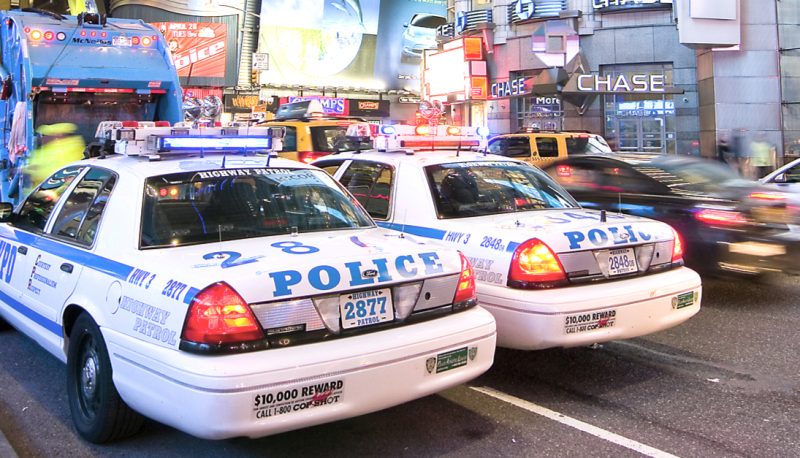“Confirmed Judges, Confirmed Fears” is a blog series documenting the harmful impact of President Trump’s judges on Americans’ rights and liberties. Cases in the series can be found by issue and by judge at this link.
Even as America was riveted on the importance of members of the public recording police misconduct in the Derek Chauvin trial for the murder of George Floyd, Trump Eleventh Circuit judge Kevin Newsom wrote a divided ruling that upheld the grant of qualified immunity to a police officer who seized a person’s cellphone and was charged with punishing him for using it to try to take pictures of police responding to an accident. The April 2021 decision was in Crocker v Beatty.
On a hot Florida afternoon, James Crocker was driving along a highway and witnessed what turned out to be a fatal automobile crash. Crocker stopped to see if he could help, and then remained on the scene, around 40-50 feet away, to take pictures with his cell phone as police and other officials arrived. County deputy sheriff Steven Beatty approached Crocker and “confiscated his phone,” without any “warning or explanation” according to Crocker. When Crocker insisted he wanted his phone back, Beatty arrested him for resisting an officer, handcuffed him, and locked him in his patrol car and turned off the air conditioning. When Beatty checked a few minutes later and Crocker stated he was “about to die” because of the excessive heat, Beatty replied “It’s not meant to be comfortable” and left him there.
Crocker was confined in the hot patrol car in handcuffs for around 30 minutes, during which he “sweated profusely, experienced some trouble breathing, and became anxious.” A Highway Patrol trooper came by and asked for his driver’s license, at which point Crocker again asked for help, and he was taken to a local jail. Officials then “released Crocker, returned his phone to him, and dropped” the charge against him.
Crocker then sued Beatty, claiming among other things that Beatty had improperly violated his First Amendment rights by seizing the phone and stopping him from recording police and other conduct at the scene, and that he had violated his due process rights under the Fourteenth Amendment for punishing him for those innocent acts. A district judge granted summary judgment to Beatty without a trial based on qualified immunity, and Crocker appealed.
Trump Eleventh Circuit judge Newsom wrote a 2-1 decision affirming the dismissal of Crocker’s complaint and ruling that Crocker was in fact entitled to qualified immunity. Newsom noted that in order to find that a police officer can be sued for misconduct and does not have qualified immunity, the officer must have violated “clearly established” rights of the victim. According to Newsom, even though the Eleventh Circuit had previously ruled more than twenty years ago that a person has a First Amendment right to “photograph or videotape police conduct,” Newsom claimed that it was not clear that this general rule “applies to the specific situation” in this case.” Similarly, even though the Supreme Court has clearly ruled that a pretrial detainee has a right not to be subjected to excessive force, Newsom maintained that it was “not clear” that the decision applied because it was “not obvious” that Crocker was in fact a pretrial detainee.
Judge Beverly Martin strongly dissented. She explained that the previous Eleventh Circuit decision “clearly establishes that Mr. Crocker had the right to photograph the accident scene” and “police activity” there. The unambiguous and “broad pronouncement” of that right, she went on, “clearly established” a general rule that “applies here.” This First Amendment right, Martin recognized, is important “not only as a form of expression, but also as a practical check on police power,” and Newsom’s opinion clearly “parse[d] this critical right too narrowly.”
Judge Martin also wrote that the decision to grant Beatty qualified immunity on Crocker’s Fourteenth Amendment claim was erroneous. Summary judgment against Crocker was wrong, she went on, because he had “presented sufficient evidence to create a dispute of fact about whether Deputy Beatty acted with the express intent to punish him” without a trial, which the Supreme Court had “clearly established” violates the Fourteenth Amendment. Crocker was entitled to a trial to resolve such disputes of fact, including whether he was a pretrial detainee, and the lower court clearly “erred in granting summary judgment” to Beatty on this claim.
As a result of Trump judge Newson’s opinion, however, James Crocker will not have the opportunity to prove his First and Fourteenth Amendment claims against Deputy Beatty at trial. Even more important, the decision threatens to narrow rights of all people against police misconduct, particularly the important right to record such misconduct, which was so crucial in the recent George Floyd murder trial. The ruling makes even more clear the importance of our fight to fill vacancies on our courts with fair-minded judges with a demonstrated commitment to justice, equality, and fundamental rights for all.

